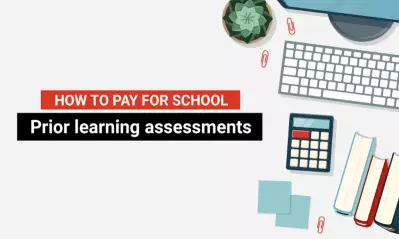6 steps to build a budget as a college student

Written byĚýCassidy Horton

Reviewed byĚýChris Conway,ĚýDirector of Financial Education Initiatives and Repayment Management

Whether you’re a traditional or nontraditional college student, going to school online or at a campus, building a budget is an essential skill that will serve you long after graduation. However, things like inflation and rising interest rates can make it challenging to plan for your future after college.
But it’s not impossible! In this article, we’ll explore six steps you can take toĚýeffectively budgetĚýas a student, even in economically uncertain times, and provide tips toĚýmaximize your savings.
How to build a budget as a college student
Budgeting isn’t about deprivation. It’s about making smart choices with your money so that you can enjoy the things you love while also saving for the future. Here’s how to do it when planning for college.
Step 1: Calculate your expenses
Before you can build a budget that fits your lifestyle, you need to understand your current expenses. This helps you get an idea of where your money is going andĚýgives you a baselineĚýto work with.
The easiest way to do this is to pull up your bank and credit card statements for the past two months. Then,Ěýdump your transactions into a spreadsheetĚýand categorize them based on groceries, transportation, credit card payments, college textbooks, tuition and fees, utilities, entertainment and so on. This might take an hour or two, but you only need to do it once. The goal of this exercise is to get a rough idea of where you spend your money.
Right now,Ěýyou may think you know how much you spendĚýon things like food and transportation, but you’re likely underestimating if you’ve never tracked it before. Driving to and from campus for class or to a coffee shop to study adds up.Ěý
Plus, inflation makes everyday goods and services cost more. That means even if you’re buying the same groceries, you’re likely paying more than you did a year ago.

This step is crucial for building a college budget that actually works, so don’t skip it!
Step 2: Assess your income
The second step in creating a budget is to assess your income. Strictly speaking, your income is your salary or wages. But you should also consider other monies you receive, like scholarships, grants or student financial aid — anything that can be applied to your living expenses and tuition. Make a list of everything you earn or receive and add it up. This will give you an idea of how much money you have to work with each month.
Step 3: Identify easy money leaks you can plug
A money leak isĚýany expense you may not be aware ofĚýbut that is slowly draining your finances. These expenses can be small, but over time they can add up to significantly impact your overall financial health.
Money leaks take many forms, such asĚýsubscription servicesĚýyou no longer use,Ěýimpulse purchasesĚýorĚýunnecessary fees and charges.
Using the spreadsheet you created in Step 1, identify three money leaks you could reduce or cut out this week. Ask yourself questions like:ĚýĚý
- Do I have subscriptions I don’t use or could live without?
- Could I shop around for a cheaper phone plan?
- Could I scale back my dining expenses by 10%? (Think cooking dinner at home or bringing lunch to work.)
- Am I paying any fees that could be avoided by setting up autopay or switching banks?
By cutting out unnecessary expenses, you can free up more money to put toward your financial goals, such as paying off student loans or saving for an emergency fund.
Ěý
Step 4: Set some practical (and exciting) financial goals
Another important step in budgeting for college is setting financial goals. These goals should beĚýspecific, measurable, achievable, relevant and time-boundĚý(SMART).
For example, you might want to start an emergency fund so you can:
- Cover unexpected expenses (especially while you’re paying for college)
- Pay off or reduce your credit card debt
- Save a set amount per month so you can reward yourself with a trip at the end of your degree program
Whatever your financial goals may be, take five minutes to list out three of them and why they are important.
Step 5: Create a spending plan for your money
After you review your income and expenses and identified some financial goals, it’s time to create your spending plan. The easiest way to do this is with a budgeting app, likeĚý,ĚýĚýor one offered by your bank.
To make the most of this step:
- Use budgeting categories.ĚýDivide your expenses into categories, such as housing, transportation, food, college expenses and entertainment. Allocate a set amount of money to each category based on your budget. (Remember Step 1? This is why that’s important!)
- Prioritize your expenses.ĚýPrioritize expenses based on your needs and financial goals. Take into account necessities like your mortgage or rent, utilities and groceries, as well as expenses related to your financial goals, such as building an emergency fund or paying off debt.
- Set limits for discretionary spending.ĚýDiscretionary spending includes things like eating out, going to the movies and shopping. Set limits for these expenses based on what you can realistically afford while working toward your financial goals.
Step 6: Be flexible
Budgeting is not a one-and-done thing. Your expenses and income can fluctuate from month to month or semester to semester as a student. Therefore, it’s important toĚýthink of your budget as a living document that needs to be adjusted regularly.
For example, one month you might have unexpected car repairs or medical bills that require you to cut back on other expenses. Alternatively, you might have a higher income another month due to a bonus or overtime pay.
By thinking of your budget as an evolving tool, you can stay on top of your finances and make adjustments as needed. This can help avoid overspending or falling behind on financial goals.
Ěý
3 tips for maximizing savings as a college student
As a student, you’re likely looking for ways to save money and stretch your budget. Here are some ideas for maximizing your savings — even when inflation and interest rates are high:
1. Make a plan for how you’ll pay for college
Christine Conway, director of financial education initiatives atĚý°®ÎŰ´«Ă˝,Ěýexplains that every student shouldĚýtry to borrow as little as possibleĚýfor college. This is one smart way to maximize the amount you’re able to save over your lifetime.
Understanding the cost and debt is just one piece of it. Students also need to haveĚýaĚýrealistic approach to repayment.
“Many students say they’ll borrow more now and start paying back while in school,” Conway explains. “But over the years, student loan service providers have told us that hardly anyone pays while in school.”
Conway says that if you don’t need the money right now, don’t borrow it sinceĚýyou’ll start accruing interest instantly onĚý.
Ěý
2. Reduce your expenses
You can reduce expenses in several ways and save money as a college student. Consider these tips:
- Take advantage of student discounts.ĚýThey’re more available than you might think! Always ask — restaurants, movie theaters, service providers — whether a reduced rate is available.
- Buy used textbooks.ĚýTextbooks don’t get less effective with use. Look into buying used ones or even available lending programs.
- Cook your own meals.ĚýMaking your own food can save you money and allow you to eat healthier.
- Use public transportation.ĚýIf you live in an area with public transportation, consider using it instead of owning a car. This can save you money on gas, parking, insurance and maintenance.
3. Increase your income
Admittedly, this is easier said than done. But there are opportunities beyond getting a promotion or another job. (Although that is an option!) Consider the following:
- Look for college scholarships and grants.ĚýMany scholarships and grants are available for students, ranging from academic scholarships to scholarships for specific fields of study. While this isn’t extra income per se, it does put money back into your pocket for other things.
- Explore opening a high-yield savings account.ĚýA high-yield savings account typically offers a higher interest rate than a traditional savings account, which means you can earn more on the money you save.
- Get a part-time job.ĚýA part-time job can provide extra income to help you save money. Sometimes the gig economy (ride-sharing or food delivery) lets you tailor extra work opportunities to a schedule that works for you. If you have the time — and it’s not always there when juggling a full-time job and family — this can help boost your income, even in the short term.Ěý
- Sell items you no longer need.ĚýYou may have things lying around that you no longer need, such as clothes, furniture or electronics. Sell them for extra cash.
- Take on freelance work.ĚýIf you have a skill such as writing or graphic design, considerĚýtaking on freelance workĚýto earn extra money. You can scale it up or down depending on your class load. You can also obtain skills and experience to help you as a student.
In the end, budgeting and saving aren’t rocket science. They are, however, contingent on discipline and organization. Luckily for students (and their bank account), those are skills that can be learned and applied immediately.

ABOUT THE AUTHOR
Cassidy Horton is an academic advisor turned finance writer who’s passionate about helping people find financial freedom. With an MBA and a bachelor’s in public relations, she’s had the pleasure of working with top finance brands like Forbes Advisor and PayPal. She’s also the founder of Money Hungry Freelancers, a platform dedicated to helping freelancers ditch their financial stress. In her spare time, you can find Horton hiking in the Pacific Northwest and cuddling her two cats.

ABOUT THE REVIEWER
As Director of Financial Education Initiatives and Repayment Management,ĚýChris Conway works with departments across the University to provide resources that allow students to make more informed financial decisions. She is also an adjunct faculty member for the Everyday Finance and Economics course at the University, and she chairs the National Council of Higher Education Resources College Access and Success Committee. Conway is committed to helping college students make the right financial decisions that prevent future collection activity.
This article has been vetted by °®ÎŰ´«Ă˝'s editorial advisory committee.Ěý
Read more about our editorial process.
Read more articles like this:


